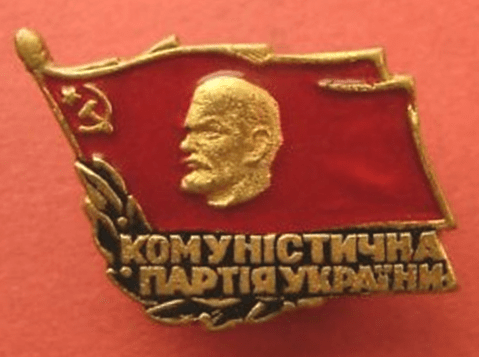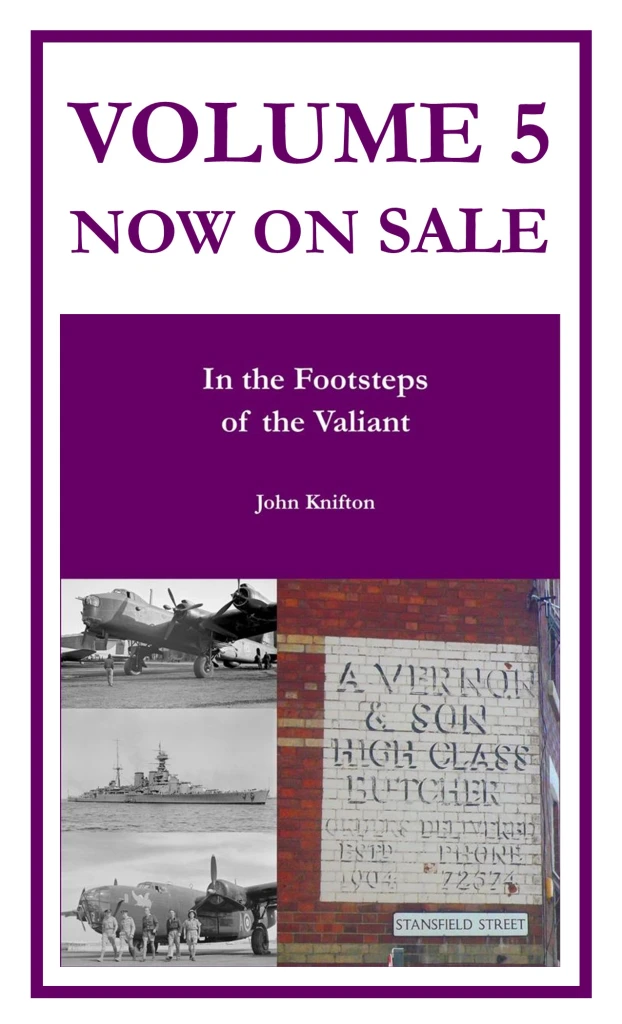Last time, we were looking at the Communist Party membership cards carried by just a deluded few of those maniacal Commies who did nothing with their lives except plot and scheme how to overcome NATO. They all carried a little booklet:
The next page we get to is all about cash. The top sets of words are Ukrainian with at least one letter “ i ” and the second one is Russian. The top box is “Payment-(of) membership-dues”. The year is 1975:
The first of the four vertical columns is the month which in Russian is “M-YE-S-YA-TS”, which is like the Latin word “mensis” and means ‘month’. Russian is a very ancient language and tends to have words related to Latin rather more frequently than many modern European languages, except for universal words such as ‘tennis’, or ‘football’ or ‘tank’.
Going down the column you might be able to work out the names of the months. They are YA-N-V-A-R (don’t bother about the little letter ‘b’. It’s an accent) F-YE-V-R-A-L , M-A-R-T, A-P-R-YE-L, M-AYE (the letter ‘й’ ias again an accent, a bit like a letter ‘Y’ in English). Then it’s “EE-YU-N” and “EE-YU-L”. After that it’s A-V-G-OO-S-T, S-YE-N-T-YA-B-R, O-K-T-YA-B-R, N-O-YA-B-R and D-YE-K-A-B-R.
The next three columns are quite interesting. The second one is headed “Monthly earnings”, so she made 271 roubles in January, 267 roubles in February and so on.
As for how much that was worth, it’s very difficult to say. I visited the USSR in 1969 and paid 3p for a newspaper or 5p for a packet of 20 cigarettes. The Moscow underground was inexpensive with go-anywhere tickets at 3p. So many Muscovites used the underground that the Soviet Mint made a special three kopeck coin to quicken things up at the ticket machines. Travel on the trams or buses was equally low-priced. Overall, most ordinary everyday things were extremely cheap, although many Western-type things were virtually unobtainable so they were very expensive.
I think Aleesa could have led a simple and relatively comfortable life on this amount of money. True, she would have lacked a lot of consumer goods but at the same time, she would not have had the average personal debt we supposedly have here in England of £14,000 per person, excluding house mortgages. Her streets were largely crime and graffiti free, she had decent accommodation that she could afford to heat, she had a job, her education was completely free and when she grew old, she received a pension. She had access to a very large number of simple leisure activities, such as sport, dance and libraries, theatre and opera and all of it was very low priced. A large number of people in contemporary Russia would return to the old days if they could, especially the old people.
Her party membership fees are listed in Column Three.
They seem to vary but are very roughly 3% of her total salary. I have not been able to find out exactly what were the particular benefits of Party membership. Presumably, a lot of ordinary people just wanted to be Communists and to defend the massive gains they had made under that system. A search of the Internet in general reveals that the Party granted people a greater chance of reaching a higher level in whichever field they were working in, from the Army to professorships in Zoology. If that’s the case though, then the Party’s doors were open a lot wider than the Bohemian Club, the Bullingdon Club at Oxford University, the Pitt Club at Cambridge University or the Skull and Bones at Yale University. And there must be lots of other clubs so secret that we don’t even know about them. This is the badge of the Ukrainian Communist Party:
Whatever Aleesa got out of Party Membership, she was happy to pay the fees. The third column is the signature of the Secretary of the local party. It’s written “S-YE-K-R-YE-T-A-R-YA”.
Vladimir doesn’t seem to have received as much per month if you look at the second column. He earned 73 roubles in January 1977, for example.
Perhaps he worked part time or perhaps he was disabled or a war veteran and received a sum every month. It’s impossible to know now. His contributions are just tiny…some 37 kopecks per month. And all of it signed for by the party secretary, although, if you look very carefully, it has already been stamped. What is on the stamp is very difficult to read, but it certainly has the word “Zolochevskiy” which I take to be the area concerned. It is the first word and begins with ‘Z-O-Lambda-O”.
What happened next, next time. In the meantime, “Workers, keep uniting!”.









What an outstanding series, John. That you can decipher it is impressive. Very interesting!
Thank you very much, you are very kind. In actual fact the Russian alphabet is not much trouble and you can learn it easily in a week. The usual method is to look at words you already know, especially place names such as Лoндoн (London) Мaдpид (Madrid) and Washington…
Вашингтoн
My sister-in-law is Ukranian and she tried to teach me her language. You are humble.
It is not easy at all.
For a deluded 6 months or so in or around 1971 I was a member of the Young Conservatives. I am sure I had a card but I forget the colour, surely it must have been blue! I came to my senses when I went to University!
Blimey, I thought you were going to say something terrible like you were in the young Liberals. My main embarrassment was the fact that, when I was a teenager, I thought very seriously for two or three years about becoming a vicar. That was a lucky escape!
I went through a similar phase John, I was certain that I had had the calling but thankfully it passed by!
You’ve certainly sold communism to me John. Cheap travel, rubbish and graffiti free, a home she can heat without the huge debt we have here, good grief why aren’t we all communists!
I think that the thing that tipped the Soviet Union over the edge were the various Western armies that invaded the country in 1919. These were an excuse, valid or not, to expand the secret police. The way that the Soviet Union was almost defeated in 1941-1943 then provoked immense spending on defence after the war to prevent it ever happening again. That in turn guaranteed few luxuries for the ordinary population. I suppose if the Soviets had had the brains to manufacture a few fridge freezers and some decent cars history might have been changed.
Don’t think though that the West never did the kind of dreadful things that the Soviets stooped to. Not with Richard Nixon and the CIA in their armoury!
It’s certainly been on the end of many intrusions and at the desires of its neighbours for a long time. The leadership, or perhaps lack of quality leadership, led the Soviets down some dodgy paths, sadly there are always casualties and in this case it was the people. I think you are right defence expenditure has far outgrown internal expenditure and when faced with persistent attacks why wouldn’t you? Everyone I know who has been there has said what a wonderful place it is to visit, I can’t imagine it’s such a great place to live though.
When I first went to Hungary in 1988 it was similarly cheap. I think the Budapest metro was 2p per journey, and even at that price many people tricked the ticket stamping machines to reuse their tickets. I seem to remember that a sandwich was 20p. What I know for a fact is that I stayed three weeks, went out every day and travelled all over, and spent £20 the entire time!
I think in the Soviet Union the things would have been even cheaper if we had not exchanged roubles at such a ridiculous rate. We got two roubles for every pound and the state had a monopoly on it. There were people in the street who would give you 30 roubles to the pound but a good few of them were KGB plants, apparently, so it might all go pear shaped if you were unlucky. Even at that rate of exchange though, cigarettes were only 2p a packet and newspapers and magazines never more than 10p. Only ice cream was expensive at 50p, but it was good, lots, lots better than anything in England.
Fascinating.
I’m glad you enjoyed it. I have actually surprised myself by how much you can deduce from a simple paying in book!
This story comes from a former pupil of Nottingham High School, Clifford Fyson:
“The late Dr. Witcombe was Headmaster throughout my time at the school and I recall him speaking with me on three occasions during this period. Once to present me with a Foundation Scholar tie. Once to tell me to get my hair cut. And on the third occasion Dr. Witcombe stopped me in a corridor to tell me that he had seen my UCCA form. And that four of the universities I had entered on it were reasonable. But that University of Essex was a bad choice because “it is full of Communists”. As events transpired that was where I studied as an undergraduate. Although my decision to enrol there was not for political reasons but because the university offered one of the few electronics courses, which did not burden students with high voltage / power electrical engineering. Preferring instead to focus on the technologies of microprocessors and telecommunications.”